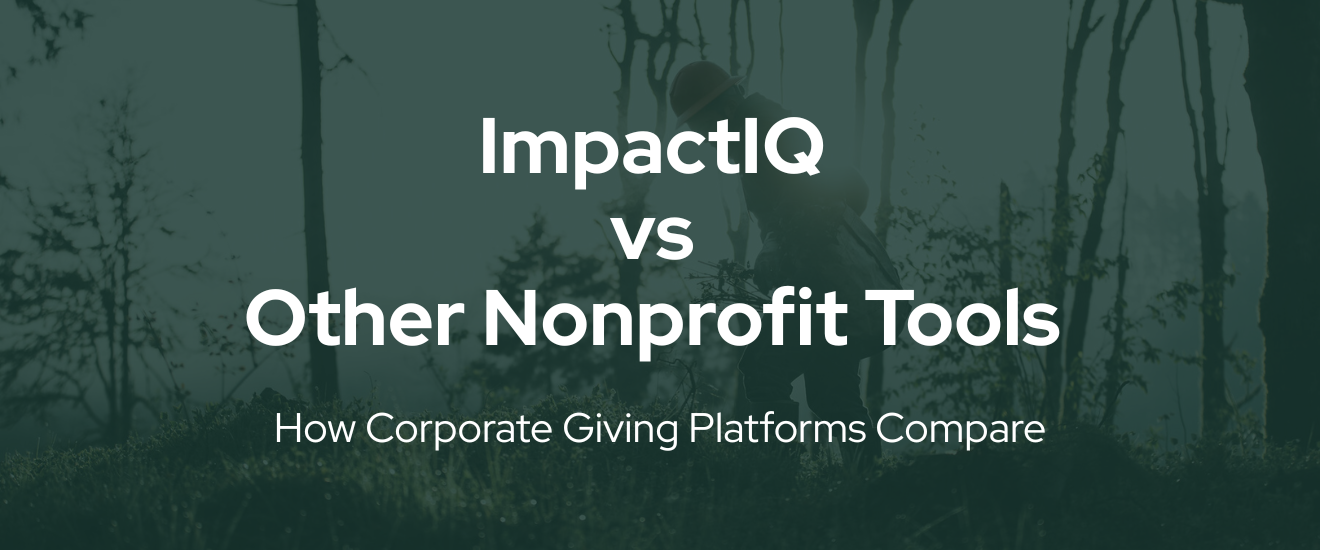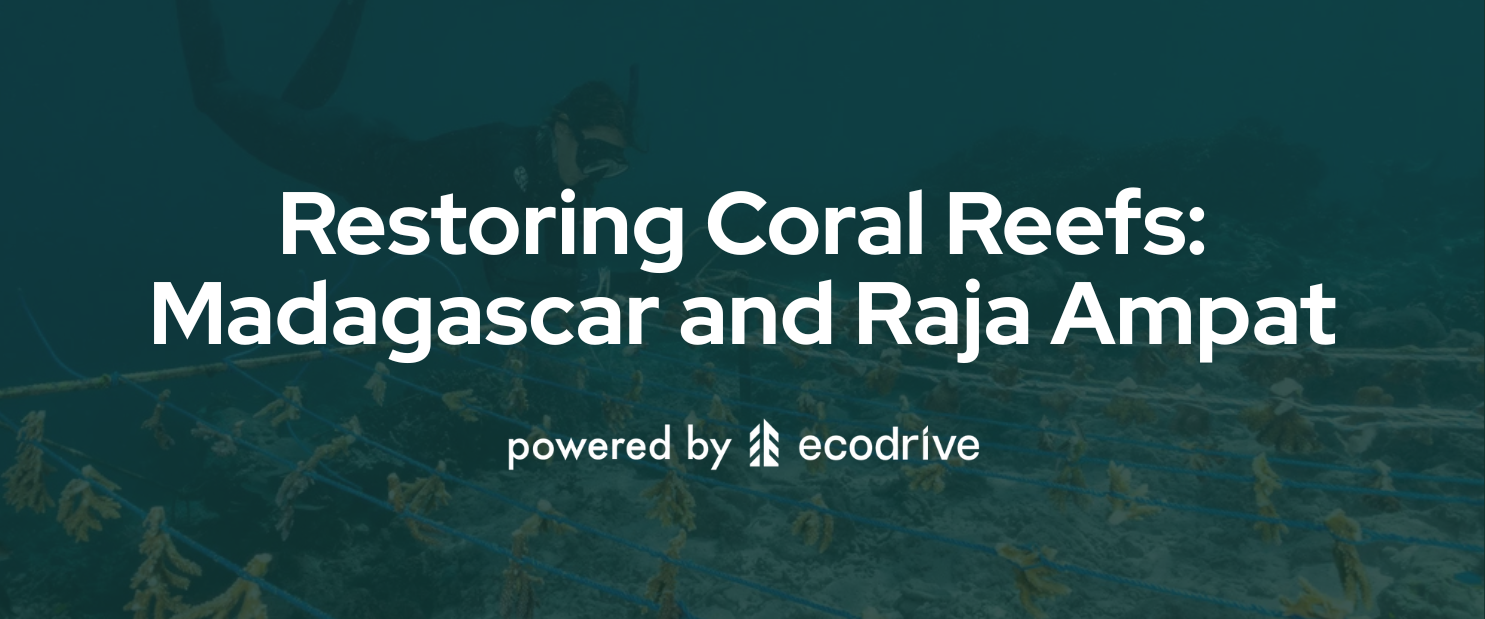How Sustainability Increases Business Value
By prioritizing our planet, you can create a positive impact on the environment and ensure long-term success for your business. Find out how.
In today's rapidly evolving business landscape, sustainability is no longer just a buzzword - it's a critical component of long-term success. As consumers become more environmentally conscious, companies that prioritize sustainable practices are gaining a competitive edge.
Join us as we explore the intersection of sustainability and business growth, beginning with an examination of two pressing environmental issues: ocean plastic and deforestation.
We'll then delve into the benefits of eco-friendly business practices and provide practical steps for companies looking to implement planet-saving practices.
Environmental Failings: Ocean Plastic and Deforestation
Ocean Plastic: A Global Crisis
The proliferation of plastic waste in our oceans is one of the most urgent environmental challenges of our time. Incredibly, according to a study by the Ellen MacArthur Foundation, if current trends continue there could be a greater weight of plastic in the ocean than fish by 2050.
This plastic pollution not only threatens marine life but also impacts human health, as microplastics are routinely found in seafood and drinking water.
A mammoth 400 million tons of plastic is produced annually, half of which is designed for single use. Five trillion plastic bags are used worldwide each year and estimates place the tons of plastic ending up in our oceans in the millions, wreaking havoc on aquatic ecosystems.
The economic impact of ocean plastic is also significant. The United Nations estimates that the cost of marine plastic pollution to the global economy is $13 billion annually, affecting tourism, fisheries, and shipping industries.
Addressing this issue requires a concerted effort from governments, NGOs, and businesses to reduce plastic production, improve waste management, and develop innovative recycling solutions.

Deforestation: Suffocating Our Planet
Deforestation is another critical environmental issue with far-reaching consequences. The World Bank reports that the planet lost 1.3 million square kilometers of forest between 1990 and 2016 - an area larger than South Africa, comparable to 1,000 football fields of forests lost every hour!
This deforestation is driven by agriculture, logging, and infrastructure development, leading to habitat loss, biodiversity decline, and increased greenhouse gas emissions.
Forests play a vital role in regulating the climate, sequestering carbon, and supporting diverse ecosystems. The loss of these forests not only exacerbates climate change but also disrupts the livelihoods of millions of people who depend on their resources.
Sustainable forestry practices and reforestation initiatives are essential to mitigating these impacts and preserving our planet's health.
The Benefits of Sustainable Business Practices
Embracing sustainability is not just an ethical choice; it's a smart business strategy.
Companies that integrate sustainable practices into their operations can reap numerous benefits, including enhanced brand reputation, increased revenue, cost savings, regulatory compliance, and long-term viability.

Enhanced Brand Reputation and Customer Loyalty
Consumers are increasingly favoring brands that demonstrate a commitment to sustainability. A study by Nielsen found that 66% of global consumers are willing to pay more for sustainable products.
A recent report by Deloitte concluded that a third (34%) of consumers stated that their trust in brands would be improved if they were recognised as an ethical or sustainable provider by an independent third party.
And a study by Unilever revealed that a third of consumers choose to buy from brands they believe are doing social or environmental good.
The effects are long-lasting.
Forbes found that 90% of customers say they will stay loyal to a brand that shares their values, whilst 65% of Millennials and 49% of Baby Boomers say that environmentally friendly products and strong ESG policies positively influence their brand loyalty.
By adopting environmentally friendly practices, companies can attract and retain customers for the long-term.
Increase Conversions and Your Bottom Line
According to the Capgemini Research Institute’s latest report, 73% of organizations that implemented sustainable product design strategies have seen improvement in revenue growth. Research and consulting firm IO Sustainability found that companies that have CSR (corporate social responsibility) programs embedded into their operations enhance sales by as much as 20%.
Ecodrive clients offering incentives such as tree planting or pulling plastic from the ocean see an average increase of 17% in on-site conversions, with consumers far more likely to complete a checkout when presented with the option to purchase sustainably (as in the image below).

Cost Savings and Efficiency
Sustainable business practices often lead to significant cost savings too. For instance, companies that invest in energy-efficient technologies can reduce their energy consumption and lower utility bills. Similarly, waste reduction initiatives can minimize disposal costs and improve resource efficiency.
A survey by McKinsey showed that 40% of respondents expect company sustainability programs to generate value in the next five years.
Regulatory Compliance and Risk Management
As governments worldwide implement stricter environmental regulations, companies that proactively adopt sustainable practices are better positioned to comply with these requirements.
This proactive approach not only helps avoid potential fines and legal issues but also reduces risks associated with environmental incidents and supply chain disruptions.
Long-Term Viability, Investment Appeal and Strategic Partnerships
Sustainability is increasingly becoming a criterion for investors. The rise of Environmental, Social, and Governance (ESG) investing underscores the importance of sustainability in financial markets. According to a report by the Global Sustainable Investment Alliance, sustainable investing assets reached $35.3 trillion globally in 2020, representing 36% of all professionally managed assets. Companies that prioritize sustainability are more likely to attract investment and ensure long-term viability.
For those businesses selling physical goods, aligning oneself with sustainable practices can also open up brick and mortar partnerships.
Retail giants like Sprouts and Whole Foods value brands with a positive environmental impact (it’s even written into their partner codes of conduct!). They often require detailed information on what brands are doing (or not doing) to support the environment before agreeing to carry their products.
By demonstrating a strong commitment to sustainability, your brand can secure placements in these coveted retail spaces, expanding your market reach and driving revenue growth.
Increase exposure
Sustainability is a hot topic online and discussing your efforts in social forums can result in a serious boost in engagement.
According to Meta’s 2022 report on sustainability trends, business posts had 4.2x more engagement when they contained sustainability-related hashtags and 10.8x more engagement when they contained eco-friendly hashtags.
Specifically regarding eCommerce, posts discussing sustainability received 7.7x more interactions than other posts from brands selling online.
Acquire Better Talent
A report from IBM found that two out of three respondents are more willing to apply for (67%) and accept (68%) jobs from organizations they consider to be eco-friendly.
Sustainability initiatives can attract great talent, but it’s also important to stay open to new ideas. 74% of people who thought of their employer as sustainable said they felt encouraged to pitch new eco-friendly initiatives, compared to only 54% who don’t.
Opening lines of communication and highlighting what you’re currently doing can improve employee loyalty and boost morale.

Starting Your Corporate Sustainability Journey
Taking steps to go green may seem daunting, but there are practical steps that businesses of all sizes can take to integrate sustainable practices into their operations.
Conduct a Sustainability Audit
The first step is to assess your current environmental impact through a sustainability audit. This involves evaluating your energy usage, waste production, water consumption, and supply chain practices.
Identifying areas for improvement will help you set realistic sustainability goals and measure progress over time.
Are you and your team doing everything you can to reduce negative impact on the planet?
Set Clear and Achievable Goals
Establishing clear and achievable sustainability goals is crucial for driving progress. These goals should align with your company's mission and values and be specific, measurable, attainable, relevant, and time-bound (SMART).
For example, a goal could be to reduce carbon emissions by 20% over the next five years, plant x number of trees, or pull x amount of plastic form the ocean per year.
Engage Employees and Stakeholders
Sustainability efforts are more successful when employees and stakeholders are actively engaged.
Educate your team about the importance of going green and involve them in the decision-making process. Encourage eco-friendly practices in the workplace, such as recycling programs, energy-saving initiatives, and green commuting options.
Invest in Sustainable Technologies and Practices
A switch of technology can bring significant long-term benefits. Consider adopting renewable energy sources, such as solar or wind power, to reduce your carbon footprint.
Implementing energy-efficient systems, water-saving technologies, and sustainable packaging can also contribute to your sustainability goals.
Integrating software such as Ecodrive into your technology stack makes backing sustainable projects as easy as a click of a button.
Ecodrive technology enables brands to attach verified ocean plastic removal or tree planting to almost any customer action, whether that be a purchase, sign-up, or even leaving a review.
The effects are extremely powerful - for both the environment and your business.
Lifetime orders, AOV and long term customer value all increase when our clients implement Ecodrive into their sales process.

Collaborate with Partners and Suppliers
Sustainability is a collective effort that extends beyond your company's operations. Collaborate with partners and suppliers to promote sustainable practices throughout your supply chain. Encourage suppliers to adopt environmentally friendly practices and source sustainable materials where possible.
Communicate Your Sustainability Efforts
Transparency is key to building trust with consumers and stakeholders. Regularly communicate your sustainability efforts and achievements through reports, social media, and marketing campaigns. Highlighting your commitment to sustainability can enhance your brand reputation and keep customers engaged.
Ecodrive clients report that their customers are 5x more likely to purchase again after receiving impact tracking emails!
At Ecodrive, we aid in the messaging of your efforts to customers every step of the way.
Your personal Ecodrive Impact Portal includes a full marketing tool kit that helps you to manage messaging around the projects you are backing, and drive value for your business.
Our partners have access to a library of brand assets including:
- Custom email templates
- Social posts
- Website banners
- Blog post content
- Icons and logos
As well as expert assistance with PR releases, influencer marketing, paid media, and website optimization.
Monitor and Adapt
Sustainability is an ongoing journey that requires continuous monitoring and adaptation. Regularly review your progress and adjust your strategies as needed. Stay informed about emerging sustainability trends and best practices to ensure your company remains at the forefront of environmental stewardship.
At Ecodrive, we are constantly refining existing partnerships and searching for new initiatives to support. From worldwide ocean plastic removal, to domestic and international tree planting, our priority is the health of our planet.

Will You Make a Change?
Sustainability is no longer a niche concern - it's a critical driver of business value. By addressing environmental challenges such as ocean plastic pollution and deforestation, companies can contribute to a healthier planet while reaping numerous benefits.
From enhanced brand reputation and cost savings to regulatory compliance and investment appeal, sustainable practices are a smart and necessary business choice.
Every step counts. Conduct a sustainability audit, set clear goals, engage your team, invest in sustainable technologies, collaborate with partners, communicate your efforts, and continuously monitor your progress.
By prioritizing our planet, you can create a positive impact on the environment and ensure long-term success for your business.
Contact us below to begin making a difference.












